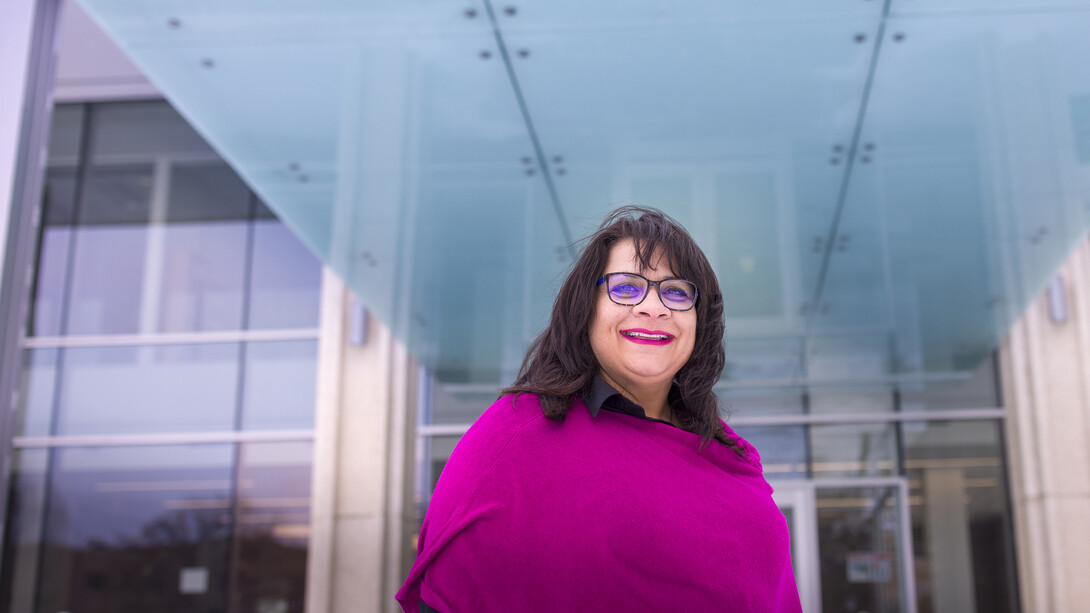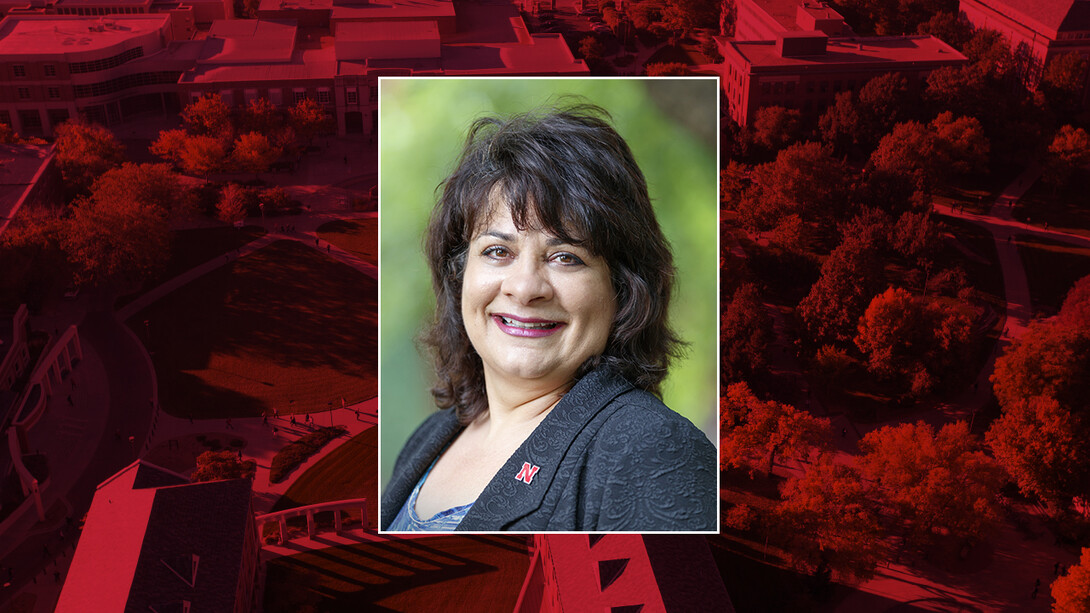
As a passionate advocate for diversity and inclusion, Helen Fagan’s work boils down to one simple belief — no one should have to feel like an outsider.
Her philosophy has personal roots. At the age of 15, only two months after moving to the United States from her native country of Iran, the Iranian hostage crisis erupted on the global stage and ignited a wave of hostility toward her ethnicity.
“It was not a pretty time for Iranians in this country,” said Fagan, who at the time was living in Florida and attending an international boarding school. “All the Iranian students at my school were put on a bus and taken to Orlando International Airport because immigration was going to check us out and make sure our families or us had no links to what was going on.”
Today, Fagan, assistant professor of practice in agricultural leadership, education and communication at the University of Nebraska–Lincoln, draws from that experience to create environments where all feel welcome and accepted.
Fagan received the Chancellor’s 2021 Fulfilling the Dream award on Jan. 28, honoring the positive difference she’s made in the university and Lincoln community by promoting the goals and vision of Dr. Martin Luther King Jr. The ceremony also honored Leonard Yankton, a Lincoln-area leader whose grass-roots activism upholds the standards of MLK as the community award winner.
“Dr. King has been a hero of mine since I started doing this work and teaching,” Fagan said. “I was just in shock that I was nominated and selected for the award, especially knowing that his daughter was going to be speaking at the award ceremony. I couldn’t believe it.”
Leaning into a career as a diversity and inclusion consultant wasn’t always an obvious choice, Fagan said. In the years following the hostage crisis, she was afraid of sharing her nationality with others for the judgement it might bring.
“When people asked where I was from, I would say, ‘Where do I look like I’m from?’” Fagan said. “People would guess everything, from Mexico, to Greece, to Italy, to Germany. Whatever country they guessed, I would say, ‘You’re right, that’s it.’ It was a safety mechanism.”
After working as a human resources specialist for a number of years, a family medical emergency propelled her to take action.
“My father had a stroke. It was the worst kind of stroke you can have. He couldn’t comprehend any language except Farsi, his birth language, so we would interpret for him,” Fagan said. “One day, a nurse was complaining because we had to interpret for him. She didn’t realize that he spoke multiple languages prior to the stroke, and the way she said it was like we were too lazy to learn English. That was not the case at all. My father loved the U.S. and everything about this country.
“That was a turning point in my career. When I moved to Nebraska, I was hired by Bryan Health, and I created and led their diversity and cultural competence programs for a number of years before I left to start my Ph.D.”
Over the years, Fagan has worked with multiple organizations in Lincoln on diversity and inclusion initiatives, including the Community Health Endowment, Bryan College of Health Sciences, Lincoln Electric System, Duncan Aviation, Ameritas, Union Bank, City Impact, Clinic with a Heart and several places of worship. She’s even founded her own consulting business, Global Leadership Group, to provide coaching to businesses and communities.
Fagan began working at the university in 2010. One of her favorite courses to teach has been ALEC 466, “Leadership and Diversity in Organizations and Communities.”
She starts each class by asking her students one question: “Who would you be afraid to bring home as your spouse?”

“The reason I ask my students that question is because I want them to identify a population that they have some level of implicit bias toward,” Fagan said. “I get a lot of students who say someone who’s gay, someone who’s transgender, a Democrat, a Republican, whoever it may be — after they identify who it is, I have them do a community service project where they go out and serve that population.
“The idea is, by putting themselves in that space where they may feel uncomfortable, they learn how to better manage the thoughts and emotions that may arise out of those interactions.”
Fagan has also been instrumental in expanding the Nebraska’s Rural Fellows Program. The program sends students to rural communities throughout the state each summer, where they complete projects aimed at helping revitalize local businesses and other organizations.
“The beauty of the program is that we’re giving international students the opportunity to experience Nebraska from a totally different angle, and students from across the country the opportunity to gain a totally new perspective. We’re also giving leaders in rural communities the opportunity to experience this generation of brilliant young minds differently than what the stereotype is that they’re hearing. It’s been a very successful program, and we’d love to see it continue to grow,” Fagan said.
While receiving the award is certainly an honor, knowing her work has made an impact has been the real prize for Fagan.
“What I’ve seen in students — the incredible shift and transformation in them — has been really powerful, and definitely a standout moment for me,” she said.







